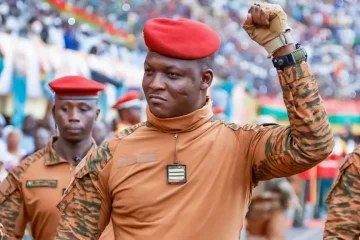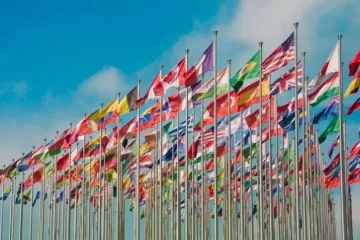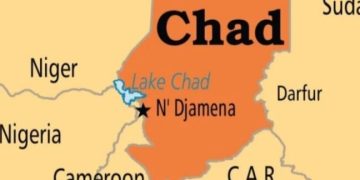
|Published 4:04 PM ET, Thursday March 6, 2025|
The evolving dynamics of US-China engagement in Africa reflect a crucial juncture in global geopolitics. Both powers seek to deepen their influence on the continent, yet they employ distinct strategies and priorities that are shaping Africa’s development trajectory and its role in the international system. This crossroads presents opportunities for cooperation but also risks of heightened competition, with profound implications for Africa’s governance, infrastructure, trade, and security landscape.
Diverging Approaches to Africa
China’s Approach: Infrastructure-Driven Diplomacy
China has pursued a largely economic and infrastructural strategy in Africa, leveraging its Belt and Road Initiative (BRI) to finance and construct roads, ports, railways, and energy projects. This engagement has been facilitated through loans, trade agreements, and state-backed investments, positioning China as Africa’s largest trading partner. While these projects have contributed to economic growth, concerns over debt sustainability and lack of transparency have fueled criticisms of Beijing’s approach.
The US Approach: Governance and Private Investment
The United States, on the other hand, has emphasized governance, democracy, and sustainable development. Through initiatives such as the Prosper Africa program and the Global Fragility Act, the US seeks to strengthen African institutions, promote private-sector investment, and counter instability. Unlike China’s state-driven model, US engagement often relies on multinational organizations, NGOs, and partnerships with African governments to promote a rules-based order and economic independence.
Key Areas of Engagement and Competition
-
Infrastructure Development vs. Debt Diplomacy
- China has financed large-scale infrastructure projects but faces scrutiny over the debt burden placed on African nations.
- The US has promoted alternatives, such as the Blue Dot Network, which focuses on transparent and sustainable infrastructure investments.
-
Trade and Investment Strategies
- China’s trade with Africa surpassed $250 billion in 2023, with a focus on raw materials, manufacturing, and industrialization.
- The US has sought to expand market access through AGOA (African Growth and Opportunity Act) while promoting private-sector-led development.
-
Security and Military Influence
- China has established its first overseas military base in Djibouti and increasingly engages in UN peacekeeping missions in Africa.
- The US maintains military partnerships with African nations, countering terrorism threats through AFRICOM and regional security initiatives.
-
Technology and Digital Infrastructure
- China’s Huawei and ZTE have played a major role in Africa’s digital transformation, raising US concerns over cybersecurity and surveillance risks.
- The US is promoting alternatives through initiatives such as the Partnership for Digital Transformation in Africa, focusing on secure and open internet access.
The Crossroads: Cooperation or Confrontation?
As US-China engagement in Africa intensifies, both powers face a choice: to collaborate where interests align or engage in zero-sum competition that may undermine African agency. Africa’s leaders, in turn, seek to navigate these global forces to maximize economic opportunities while safeguarding sovereignty.
- Potential for Collaboration: Climate change initiatives, health security (e.g., pandemic response), and infrastructure financing present areas where cooperation could benefit all parties.
- Risks of Escalation: If strategic rivalry escalates, Africa may become a battleground for geopolitical competition, leading to increased debt distress, political polarization, and security dilemmas.
Conclusion: An African-Centered Future
Ultimately, the future of US-China engagement in Africa must be shaped by African interests. A sustainable path forward would prioritize African agency, ensuring that investments align with local development goals and economic independence.
Whether this moment at the crossroads leads to greater partnership or deepening competition will depend on how both the US and China respond to Africa’s evolving aspirations and demands.
Dr. Michael Omoruyi—Publisher, iNewsAfrica.com
Dr. Michael Omoruyi is a distinguished information technology, generative AI, and media professional with a robust background in academia and media consultancy. He currently serves as the Publishing Director at iNewsAfrica, an online news platform dedicated to delivering eyewitness news from Africa to a global audience. In addition to his role at iNewsAfrica, Dr. Omoruyi has an extensive academic career, having served as a professor at the College of New Rochelle in New York. His commitment to education is further exemplified by his position as President of the Polytechnic Computer Training Center, where he has been instrumental in advancing computer literacy and education.
UNGA-80: Africa Speaks, the World Must Listen
September 26, 2025Africa Finally Has a Voice: Why iNewsAfrica Was Founded
September 24, 2025
Leave a reply Cancel reply
Popular Categories
- Mauritania 1
- Guinea-Bissau 1
- Culture 1
- Trade 1
- Ivory Coast 1
- ICJ 1
- Somali 1
- Europe 1
- United Nations 1
- Israel 1
- Nepal 1
- Thailand 1
- Zimbabwe 1
- West Africa 1
- Brazil 1
- Finland 1
- Colombia 1
- Travel 1
- Automobile 1
- Myanmar 1
- Entertainment 1
- Mozambique 1
- Morocco 1
- Space 1
- UNDP 1
- Global Diplomacy 1
- Vatican City 1
- Book & Arts Spotlight 1
- ECCAS 1
- senegal 1
- The Hague 1
- Vietnam 1
- Gambia 1
- Tunisia 1
- Wildlife 1
- Togo 1
- Celebration 1
- Interview 1
- BRICS 1
- Democracy 1
- Defense 1
- Gabon 1
- Pakistan 1
- Weather 1
- Terrorism 1
- Algeria 2
- Economy 2
- Church 2
- Energy 2
- New York City 2
- Science 2
- Somalia 2
- Zambia 2
- Rome 2
- Angola 2
- World Bank 2
- Middle East 2
- Benin Republic 2
- Cameroon 2
- London 2
- Education 2
- Sierra Leone 2
- Business 2
- Chad 2
- Caribbean 2
- Ukraine 2
- Ukraine 2
- Haiti 2
- Guinea 2
- India 3
- Russia 3
- South Sudan 3
- Uganda 3
- Crime 3
- Namibia 3
- Music 3
- Ethiopia 3
- Transportation 3
- Rwanda 3
- Tanzania 3
- Congo 3
- Lesotho 3
- Aviation 3
- France 3
- Liberia 4
- Health 4
- Libya 5
- Egypt 5
- UN 5
- UK 5
- ECOWAS 5
- Mali 7
- China 7
- Niger 8
- Editorial 8
- Sudan 9
- Burkina Faso 10
- Politics 10
- Tech 12
- Technology and Business 13
- Ghana 13
- DR Congo 15
- World 15
- Sports 17
- Kenya 17
- Opinion 18
- People 22
- South Africa 28
- US 44
- OP-ED 57
- Africa 81
- Nigeria 151

Email: [email protected]










